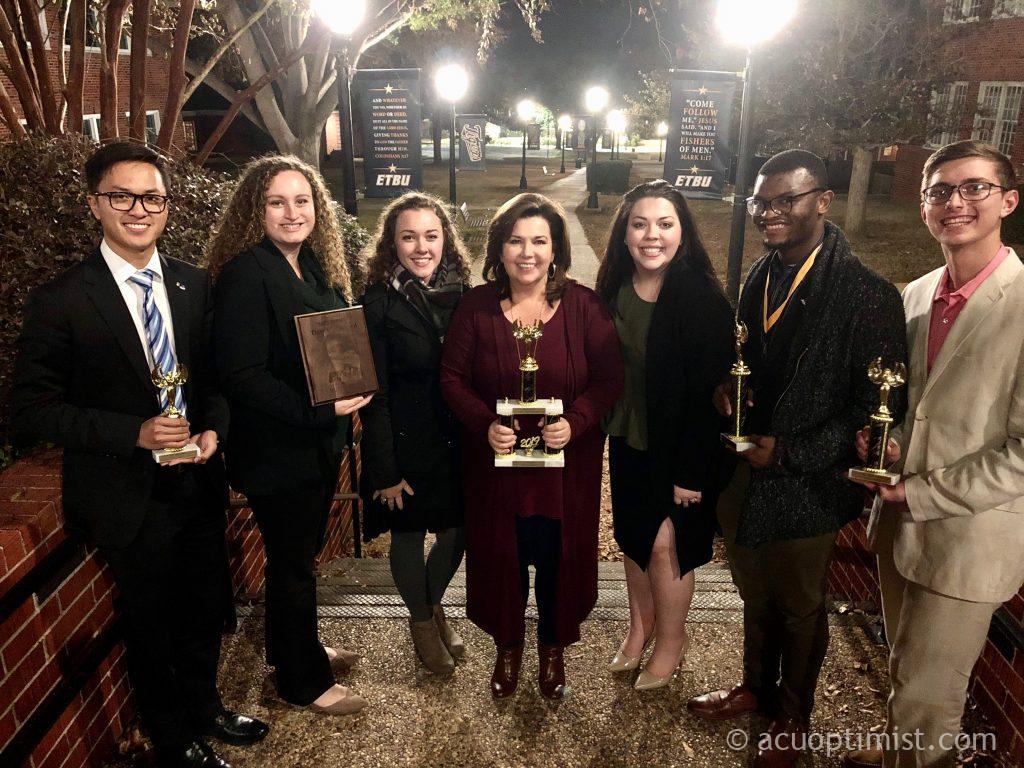Members of the debate team collectively won first, second, and third place overall, along with first through fourth place speakers as well, at their recent tournament at Howard Payne University.
The team has attended four tournaments this semester, alongside Coach Sheila Ritchie, director of debate and associate professor in the Department of Communication Sciences and Disorders. The result has been one of the most successful seasons in the history of the debate team. The team of only nine members has represented greatly in the face of schools like TCU, UT Austin, and LSU, bringing home trophies and awards at each tournament.
“We’re competing with big schools that are bringing bigger teams,” Ritchie said.
At each tournament, debaters compete in the newer IPDA style debate. Each round is a one-on-one debate that rewards the skill of reasoning above prior knowledge about the topic.
“In college, a lot of times they want a coach, they want a GA, they want someone who’s trained in policy, they want them to know stock issues,” Ritchie said. “The real world doesn’t require that. If you’re sitting on a jury, or you’re a lay judge, if you’re speaking to the House or the Senate, half the people out there may know what you’re talking about, half of them may not.”
Debaters go into their rounds with no printed material or even an idea of what their topic may be. After choosing their topic with their opponent, debaters are given 30 minutes to prepare their arguments for the round ahead. Once the debate is over, they must get ready for potentially six more rounds, all with different topics.
“Evidence is useful but not absolutely necessary because you have the ability to reason,” Ritchie said. “It’s something that, because it doesn’t have to have a lot of prior knowledge, actually isn’t hard for someone to give it a try.”
Students and debaters like Elijah Biendinger, junior business and political science major from San Antonio, and Lexi Ritchie, senior marketing major from Abilene, said there are many other advantages of knowing the skill of debate.
“In debate, a lot of the resolutions we get are going to be policy and that’s going to help me in policy and help me understand how this helps businesses,” Biendinger said.
These tournaments contain academics in focuses from pre-law to pre-med. The highest level even has graduates of colleges returning to sharpen the skills required in a forum such as this.
“I do not know for sure what I would like to do after I graduate, but I know that what I’ve learned in debate will help,” Lexi Ritchie said. “Everyone has to speak and everyone has to reason, and because of debate I will always have these skills with me.”

